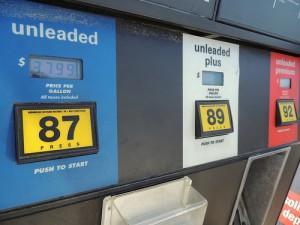
There are serious environmental issues with America’s new-found love affair with natural gas. You could argue that Pennsylvania is selling its clean water for a tax base, but I’m not going to bother with that now. Instead, we’re going to look at a more round-about mechanism by which natural gas could ruin things:
Oil prices.
An article in Foreign Policy this week points out that fracking and the Iranian diplomacy deal (which, for the record, I think is a good thing) could undermine OPEC, the Organization of Petroleum Exporting Countries.
“The cartel’s dominance is already threatened by a boom in oil extracted from shale in the United States, and now the potential return of millions of barrels of Iranian oil to the market looms over Saudi Arabia and other OPEC countries as they meet in Vienna this week,” Jamila Trindle writes. “The end result could be lower oil prices next year, according to many analysts.”
Bust out the confetti and bring on the parades.
Unfortunately, there is a link between oil (gas) prices and consumer demand for car efficiency. A study from the University of Chicago found that the market share of the 25 percent least fuel-efficient cars decreased by almost 20 percent when gas prices increase by $1, and the market share of the 25 percent most fuel-efficient cars increased by almost the same amount. In 2012, Consumer Reports found that 37 percent of consumers said the leading consideration when shopping for their next car would be fuel economy.
Furthermore, according to the Union of Concerned Scientists, U.S. transportation sector accounts for more oil consumption than all other U.S. uses combined. “Clean vehicle and fuel technologies can dramatically reduce the amount of oil we use for transportation—saving consumers billions of dollars, slashing oil consumption, and moving us toward a cleaner, safer transportation future,” the group says.
So the next time you see headlines crowing about falling prices at the pump, consider whether you would rather pay a little more for oil and natural gas now, or pay a lot for the consequences later.




